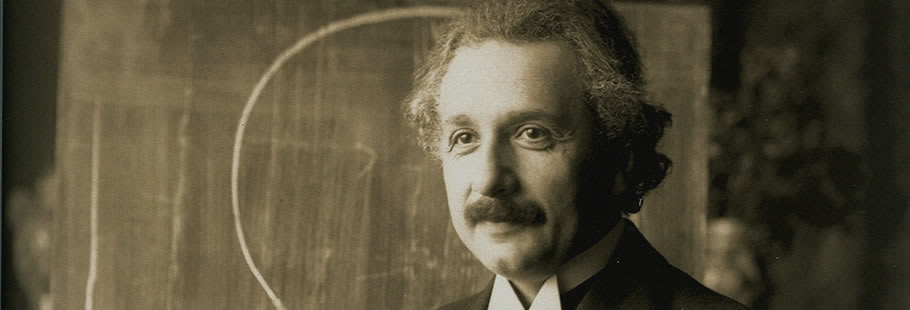6 Things to Look for in a PhD Supervisor
Finding a PhD usually means finding a suitable PhD supervisor. In Arts, Humanities and Social Sciences this will usually be someone you contact to discuss your research proposal. In STEM, it's more likely to be the person advertising the project you apply for and leading the research group you'll join.
Either way, the supervisor is as important as the project. Their interest and expertise that will make your topic possible (whether directly or indirectly) and your relationship with them will play a huge part in shaping your PhD experience.
So, what actually makes a good PhD supervisor? What should you look for when you're considering approaching someone with your project, or deciding whether to apply to theirs?
The amount of research an academic has done doesn’t necessarily reflect how well they might supervise you. However, it’s important that they have a good grasp on the process of undertaking research, as that’s precisely what you’ll be doing.
More importantly, you need to know that your prospective supervisor’s expertise lines up with the research topic you want to pursue with your PhD.
You don’t need to find someone who’s written on your exact topic (in fact, you want to avoid that – the PhD has to be original, after all!). But you will want to be mentored by someone who understands the area you’ll be working in and can offer appropriate guidance as you shape your project.
You can easily find out about an academic’s research outputs by exploring their past activities (including books, editorials, reports, press articles, as well as public engagement work such as exhibitions or conferences).
A look at university websites (and / or a simple internet search) will usually be good place to start.
Whilst you don't want someone who's basically writing your PhD (see above!) you do want someone who's interested in it.
The problem is, previous research interests won't always be the best guide to this. Sure, Professor Smith might have written the book on Charles Dickens and periodical publishing back in 1998. . . but does she want to revisit that area right now? If she's just published an article arguing for a move away from canonical Victorian authors, perhaps not.
Of course, another scholar might love the idea of revisiting their earlier work with an enhthusiastic new student - particularly if you can identify some 'unfinished business' to tackle together (that might be something to mention in your research proposal).
All of this might not seem like as much of an issue if text-decoration:underline;you're applying for an advertised project. After all, this PhD should be the supervisor's current interest if it's what they're set up a laboratory to research. Still, it's worth checking just how interested they are and, perhaps, how experienced.
#3 - Supervision experience
Supervising a PhD student takes particular skills (people management, patience, mentoring, pastoral support, etc). These aren't the same skills it takes to write an academic study, or even teach undergraduates.
All academics can gain them (more or less) but the best way to check if someone has them is to see if they've supervised before.
So, take a look at their staff profile, and find out if your potential supervisor has mentored anyone in the past. If they do have a few successful supervisions (to PhD completion) under their belt, that's a really good sign.
That said, more isn't necessarily more when it comes to PhD supervision: some excellent supervisors don't end up mentoring lots of PhD students – especially if their area of research is quite niche or their university is off the beaten path.
Equally, there's no rule to say that someone with no experience will make a bad supervisor. In fact, that's pretty unlikely. After all, a world in which every superisor's first student failed their PhD would be a world with very few PhD graduates (or experienced supervisors!).
So, if an early career academic looks like a great fit for your PhD, they probably are. And they'll get the support they need to support you.
#4 – Past and present supervisions
Looking a little more closely here: if your supervisor has supervised other PhDs, what have they supervised on - and who are they currently supervising?
It’s not uncommon for a supervisor to be responsible for more than one PhD student, simultaneously. They might be part of the same lab group, working on related experiments. Or they might be pursuing very different projects in the same broad field.
It’s also likely that an established academic will have supervised students before. This past and present supervision experience is worth investigating.
Previous supervisions are a good indicator that an academic can mentor a PhD to completion. But, if your potential supervisor is currently supervising other postgraduates, it’s worth confirming they’ll have time to support your project too.
There's nothing necessarily wrong with a supervisor having lots of current PhDs (in fact, being part of a cohort of 'PhD siblings' can be a really positive experience) but this can lead to a very busy supervisor, with a little less time for extra questions and support.
It’s important to remember that, while you may have one (or two) official supervisors for your PhD, there is no limit to the number of people you can approach for advice. That’s true before your doctorate as well as during it.
Rather than limiting yourself, why not ask fellow students about their experiences?
It might even be possible for you to track down individuals mentored by the supervisor you’re thinking of selecting, and politely asking them about their experiences.
The kinds of questions you may want to ask could include: ‘What is their supervision style?’; ‘How useful was their feedback?’; ‘Could you correspond with them efficiently i.e. over email?’.
Try not to be to over-bearing, but don’t be afraid to ask what you might deem to be ‘silly’ or ‘naive’ questions. After all, you’ve got to start somewhere.
This might seem like an unusual point, but it’s still something you should definitely consider.
After all, you and your supervisor should have a good working relationship in order for your PhD to succeed.
So, what kind of personality do you want your supervisor to have?
Think about the academics you already know – who do you admire? Which faculty members make you feel comfortable chatting to and discussing your work with? What qualities do you admire about these people?
There’s a good chance that the kinds of qualities you appreciate in the academics you already know are also those you’ll want (and benefit from) in a PhD supervisor.
Meeting with potential supervisors is a good way to establish what you can expect from working with them – so get in touch!
Editor's note: A version of this blog was first published on 28/06/17. We've expanded and improved it for current readers.
Want More Updates & Advice?
Types of supervisor
Another approach to choosing a PhD supervisor is to think about the different 'types' of mentor available.
Three PhD interview experiences
Sofia completed three interviews, with three supervisors, for three PhDs. In the process she found the perfect mentor for her.

 Continue with Facebook
Continue with Facebook





